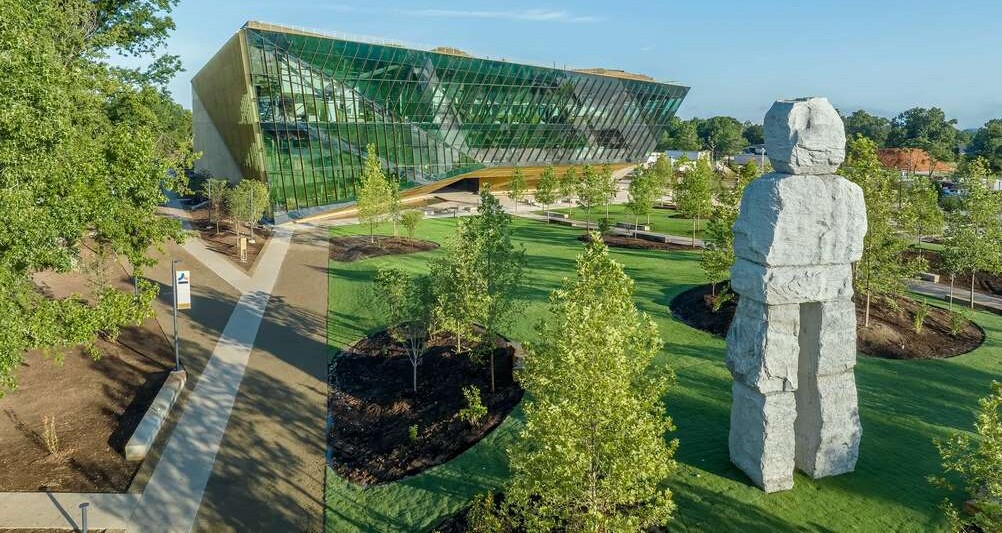
In Arkansas, a new medical school has just opened that aims to train a new generation of doctors on preventative medicine and whole-health principles.
It was dreamed of and financed by arguably the world’s wealthiest woman—a Walmart heiress whose personal struggles with illness and the incentive-based system of American ‘sick-care’ kindled a desire for change, especially in her own rural community.
The Alice L. Walton School of Medicine received 2,000 applications from hopeful young future doctors around the country, accepting only 48 to come and study at the Bentonville campus.
Anyone who raises an eyebrow at alternative approaches to medicine can close the article now, because the curriculum includes art and cooking classes, gardening and horticulture—all tailored to engender a perspective of cultivating health, not managing sickness.
And that is the great challenge faced by the American medical system. It has improved the survival and care of life-threatening diseases and pioneered dozens of mind-boggling surgical procedures, yet the system can be given nothing greater than a failing grade for the state of general human health.
For a nation that styles itself as the greatest to ever exist, its citizens suffer from more non-communicable chronic diseases borne of poor diet and lifestyle choices than any other in the developed world, and nearly half of all American adults are obese.
Profiled in TIME Magazine, Alice Walton would like to see what the American health service sector would look like if doctors spent time focusing on preventing sickness from occurring rather than treating it once it arrives.
It’s not a novel idea: the functional medicine movement is working on gestating a similar revolution among healthcare practitioners. It’s so un-novel that it was expounded by none other than Founding Father Benjamin Franklin, who said so famously that an ounce of prevention is worth a pound of cure.
To lead her school in embodying that message, Walton picked Dr. Sharmila Makhija, a gynecologic cancer surgeon from Alabama, who like Walton, has seen the dire shortcomings of rural health in her home state.
“The foundation [of the curriculum] is traditional medicine but enhanced with the humanities and the arts to improve the delivery of care—so we improve on how we [act] with patients and how we partner with patients,” Dr. Makhija told TIME.
The average American medical school includes around 20 hours of coursework on nutrition: the backbone of health and the major spawning pool of so many chronic diseases. Along with being not very much, many of those hours of coursework are elective. At the Alice Walton School of Medicine, acronym “AWSOM,” there are 50 hours, at those include culinary classes.
A rooftop vegetable garden mounted on the dramatic glass facades of the main campus building serves as a different sort of classroom, while a nearby learning farm helps further educate on the nature and origin of the food eaten by the patients of these future doctors.
ALSO CHECK OUT: Anonymous $3.5 Million Gift to Milwaukee Art Museum Provides Free Admission for Children
If you hope to be able to keep a 40-year-old human healthy, you should be able to keep a tomato plant healthy—just one concept in a series that aims to cultivate empathy and the ability to predict where illness will spring from.
As part of their training, students will be able to design a section based on community service and research projects; yet another way that AWSOM methods hope to generate an empathetic eye through the belief that doctors should serve the needs of their community.
ALTERNATIVE MEDICINE STORIES: Priceless Preventative Healthcare Is Now Free in Poland Thanks to New Program
According to TIME, how a prospective student planned to address healthcare shortcomings in their area was a chief determinant of eligibility for attendance.
Both Dr. Makhija and Ms. Walton acknowledge that they can design whatever curriculum they want, but if their graduates just jump into the existing health system, it will be all for naught. For that reason, AWSOM is conducting extensive clinical outreach to build a network of potential establishments willing and eager to test the novel strategies brought forward by the school’s eventual graduates.
PHILANTHROPY IN HEALTH: New York Medical School Surprises Students with Free Tuition in Perpetuity After $1Billion Gift–WATCH
“It’s all about rethinking and re-envisioning what the education of the next generation of health care workers will be like,” says Makhija. “Alice and I are very keen on creating a sustainable model of education, both in how we deliver the curriculum that can be replicated, as well as fiscally, so that other schools can use a similar model.”
The first five years of enrollments will be bankrolled by Ms. Walton’s sizeable fortune.
SHARE This Revolutionary Approach To Medical School With Your Friends…
